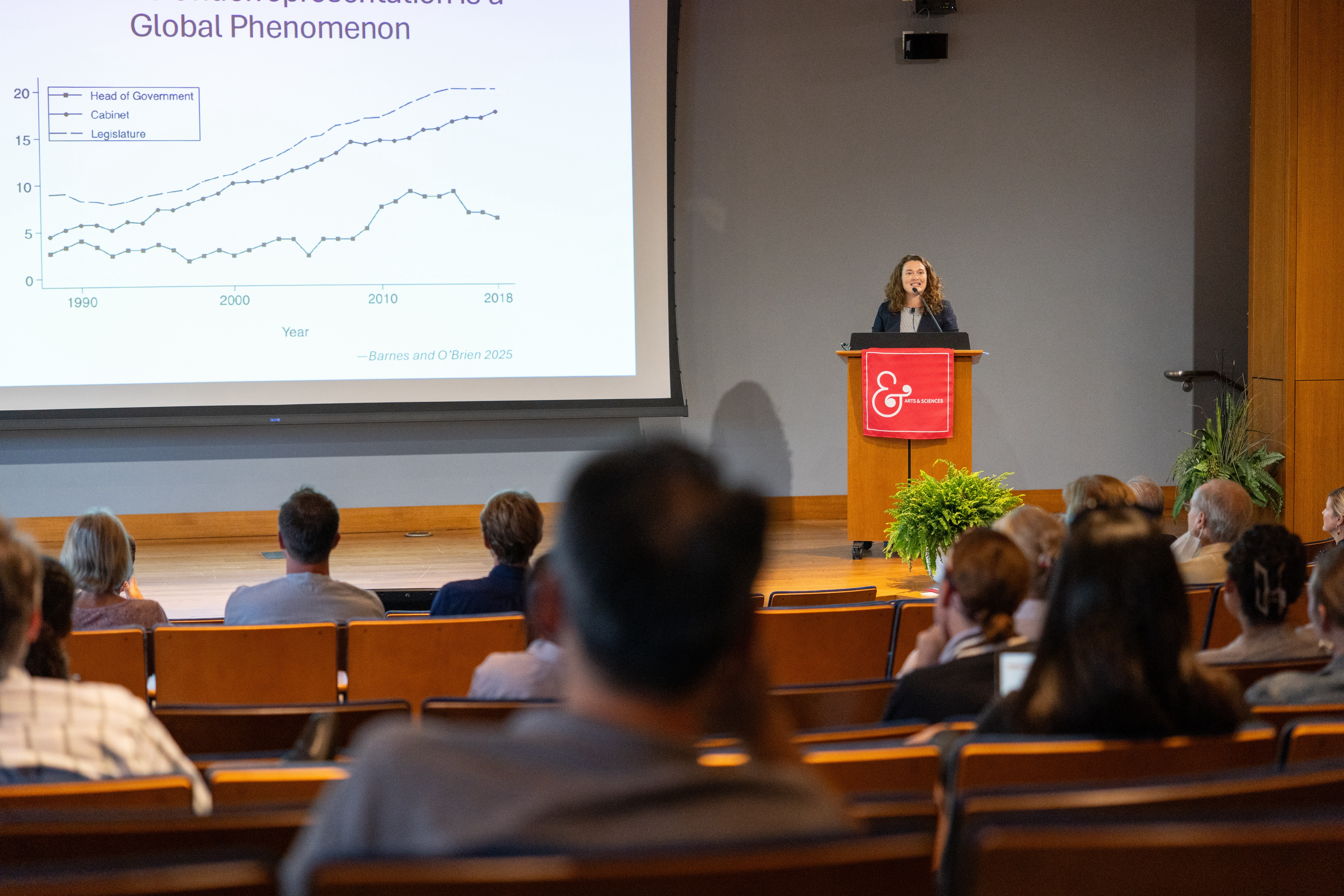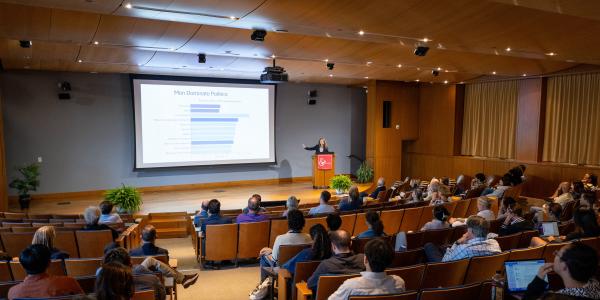During the Fall 2024 Dean’s Distinguished Lecture, Diana Z. O’Brien, the Bela Kornitzer Distinguished Professor in the Department of Political Science discussed how developed nations including the United States can overcome the barriers that keep women from public service.

In this U.S. election season, politicians are vying for mayorships, seats in Congress, and, of course, the presidency. While Election Day is still a month away, one outcome is already assured: When the votes are all counted, most of the winners will be men.
During the Fall 2024 Dean’s Distinguished Lecture, Diana Z. O’Brien, the Bela Kornitzer Distinguished Professor, explored the causes and consequences of gender imbalances in politics in the U.S. and around the world. Political inequity isn’t just a matter of fairness, she said. It’s a problem that degrades policy-making and the effectiveness of government. “Women’s representation really matters,” she said. “They bring unique perspectives to political offices.”
Here are five takeaways from her lecture.
1. Men continue to dominate politics.
O’Brien pointed to the U.S. as a prime example of a global phenomenon. In this country, men make up less than half of the population, but they account for two-thirds of state legislators and municipal office holders, more than 70% of members of Congress, and more than 75% of governors. So far, they’ve also accounted for 100% of all U.S. presidents.
2. Significant barriers discourage women from seeking office.
The lack of women in politics can be traced to issues of supply and demand, O’Brien said. On the supply side, women are less likely than men to have the time or resources to mount a campaign. O’Brien pointed to her own research that showed men are more likely than women to have political ambitions. Notably, men are also more likely than women to feel qualified to run for office, whether that’s a spot on the school board or the leader of the free world. “We’re in a political environment that fosters men’s ambitions,” she said.
Even if women can see themselves in office, they face gatekeeping by party leaders, many of whom are men. If they can get their names on a ballot, voter bias presents another hurdle. “The success or failure of women candidates is shaped by voter stereotypes about men's and women's traits and competencies,” O’Brien said.
3. Political systems suffer when women are underrepresented.
Not only are women more likely to advocate for women’s issues, but they also tend to be more innovative and successful in crafting policy, O’Brien said. “In the U.S., women introduce more legislation than men, and they’re more effective at working with other lawmakers,” she said. “They also respond more helpfully to their constituents.”
4. Quotas work.
O’Brien pointed to the international success of gender quotas for political offices, a straightforward approach that brings more women to politics without compromising the quality of representation. She noted that more than 90 countries in the world require either a certain percentage of women in their legislature or on their rosters of candidates. “When you have to elect more women, lo and behold, you’re able to find women who are qualified for the job,” she said.
Still, she’s not optimistic that the practice will be adopted in the U.S. anytime soon, partly because of widespread mistrust of the concept and partly because of the primary system that determines candidates for general elections. “It’s the most uphill battle I could choose,” she said. “I’ll keep advocating.”
5. Women don’t need to wait their turn.
Despite the obstacles and headwinds, O’Brien said more women should be answering the call for public service for the good of their communities, states, and beyond. “Women should be running for school board, city council, mayor, the state house, Congress, and the presidency.”




